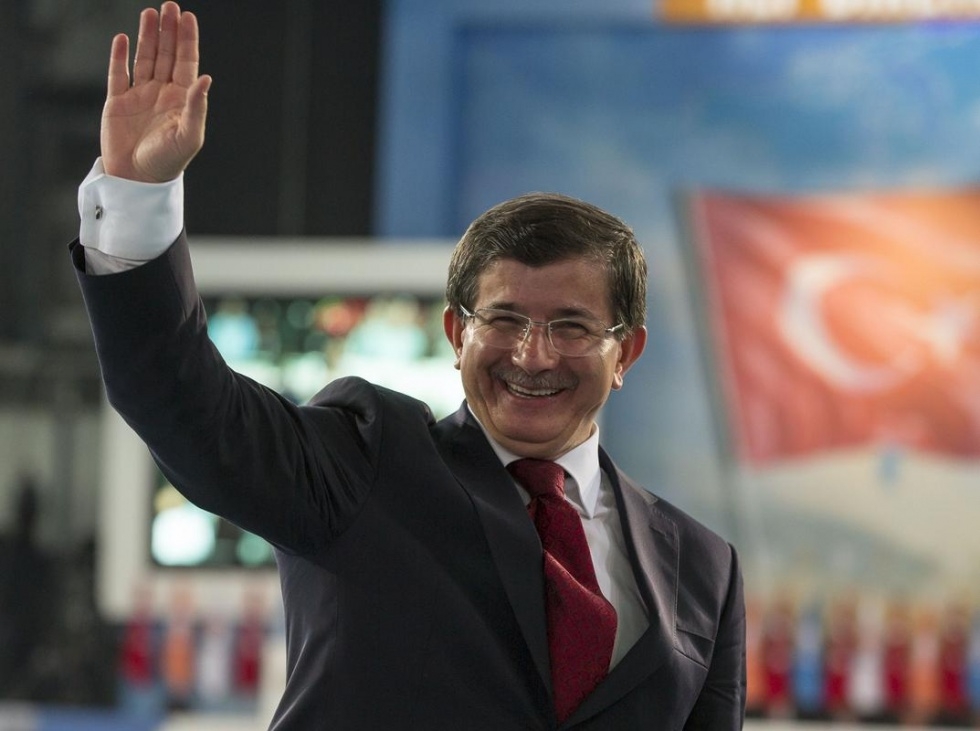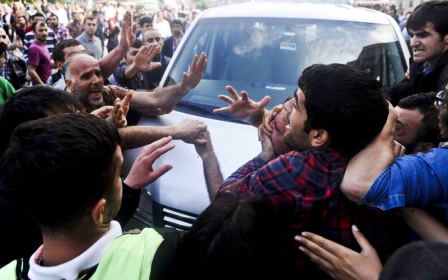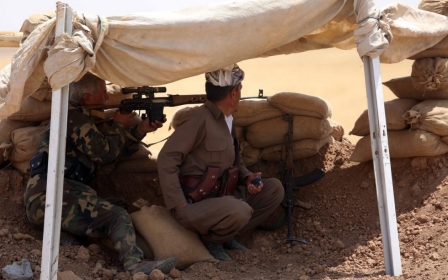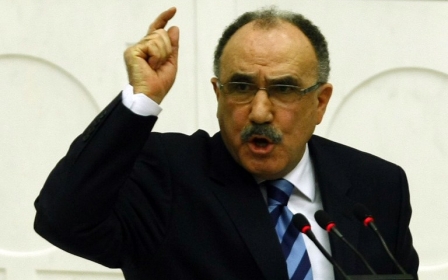The pro-Kurdish security discourse and PKK’s unlikely disarmament

Since the beginning of the domestic peace process in March 2013, the Turkish AKP (Justice and Development Party) government’s main vision in resolving the Kurdish conflict has been its gradual de-securitisation through a focus on economic dividends, cultural rights and social integration. The new Davutoglu cabinet aims, in this regard, to pursue a self-possessed agenda with a clear objective to prompt a similar approach among the Kurdistan Worker’s Party (PKK) circles and ensure the disarmament of the Kurdish militia and their homecoming by 2015.
Indeed, the pro-Kurdish PKK and People’s Democratic Party (HDP) axis is also motivated to see concrete outcomes in the shortest term possible, and therefore insists to begin the next stage in the process by negotiating the terms of an agreement ending the 30-years old conflict.
Yet, both sides have clearly different visions regarding the process, and this divergence is exacerbated with the latest regional developments. While the AKP gives priority to de-securitising the conflict and avoiding armed conflict, the pro-Kurdish axis will likely seek to maintain the PKK’s status as an armed group, particularly growing international concerns regarding the Islamic State (IS).
PKK-HDP axis on the counterattack: a pro-Kurdish security discourse
When he was the minister of foreign affairs, Davutoglu’s policies were designed to contribute to the de-securitisation of the Kurdish issue through benefiting from the rivalry between the PKK and Kurdish Regional Government (KRG), and through building a regional bloc with the latter for creating a pro-AKP axis among the Kurdish population. The core idea of the strategy was to publicise a positive image of the Turkish government, so as to prompt economic development for the Kurds like the Turks.
As prime minister, Davutoglu would evidently seek to sustain such a position before engaging in this decisive phrase, and as his government needs time to build the “optimum” strategy, given that the fast changing regional dynamics are wearing down its already imperfect achievements.
Firstly, the upshots of the Islamic State’s advance in Northern Iraq demonstrate the fragility of the regional blocs. The PKK and KRG Peshmerga forces’ joint action against IS in the Sinjar, Zumar, Maxmur and Kirkuk regions and Barzani’s meeting with the PKK militia have been unanticipated developments with a capacity to subside the AKP-KRG alliance and orientate the latter towards a more pro-PKK stance.
The unification against a common enemy is one of the most fundamental conditions for community building. And combined with cultural commonalities, the rise of IS as a common threat could be a catalyst of further integration between the two once rival Kurdish factions.
Secondly, the AKP government will probably have to wait longer for the PKK’s disarmament, as the Kurdish issue becomes increasingly internationalised. Contrary to the beginning of the domestic peace process, the “international community” is now also involved, as it relies on the PKK to counter the IS advance. France, Germany, Italy, Britain and the United States have been sending arms to Kurdish fighters since last month - albeit in cooperation with the central Bagdad government - in order to avoid their passing on to the outlawed forces. However, as expressed by Philipp Missfelder from Germany’s CDU government, the PKK has been considered as “doing good things for the region in recent weeks” and its anti-IS assaults secured Western interests in the region.
At this stage, the PKK axis’ main purpose is to counter-attack the AKP strategy of “de-securitisation” through propagating its own security discourse adapted to regional dynamics. Promoting its image as a regional force acting against IS and protecting the region’s people, the PKK intends to gain international legitimacy as an armed actor.
The new pro-Kurdish security discourse has been echoed also in the domestic context by the co-chair of the People’s Democratic Party, Selahattin Demirtas, who asked the Turkish government to support the PKK against IS by providing weapons, and called for a united Kurdish army in the region against common enemies.
One must admit that the domestic peace process may be a very important initiative taken by both sides. However it is impossible to disregard the antipodes between discourses and intentions of the involved parties.
AKP forced to take sides
Actually, PKK has always manifested reluctance to disarm, in distrust against the real intentions of the AKP government. Even before the escalation of the IS crisis, the organisation warned that “there would not be any lasting peace through attempts to force the PKK into one-sided, unilateral disarmament.”
In today’s violent context, and more particularly, in regards to the West’s and other regional groups’ increasing security needs, the PKK not only rejects disarmament, but even intends to exploit the small but existing opportunity to manipulate perceptions and establish itself as a regional security force.
Against this background, the AKP’s tardiness to act as a regional actor carries the risk of giving the PKK free rein to propagate its renewed security discourse and ensure its armed status.
If the Turkish government is willing to de-securitise the Kurdish conflict, by which I mean handling the Kurdish issue not through security policies but within the framework of normal civilian policies such as economy, social integration, cultural rights, etc.., paradoxically, it will also have to take notice of the regional security needs as much as the PKK-HDP axis.
The Kurdish conflict, along with other domestic and international factors, is pushing the AKP government towards an anti-IS stance, as even its only partner in the region in KRG expects to see certain concrete steps in this regard.
It is critical for the Davutoglu government to contribute to IS’s withdrawal, in order to maintain and further reinforce a pro-AKP bloc in the region.
Reluctance to do so may prevent the AKP from obtaining the advantageous negotiation position it has longed for since the beginning of the peace process, as security needs appear to overshadow economic hopes for the region’s shaken populations.
- Ozan Serdaroglu has research experience on Turkey and the Eastern Mediterranean, with a focus on political and economic development, Euro-Med relations, conflict management, regional cooperation and energy issues.
The views expressed in this article belong to the author and do not necessarily reflect the editorial policy of Middle East Eye.
Photo credit: Ahmet Davutoglu (AA)
Middle East Eye propose une couverture et une analyse indépendantes et incomparables du Moyen-Orient, de l’Afrique du Nord et d’autres régions du monde. Pour en savoir plus sur la reprise de ce contenu et les frais qui s’appliquent, veuillez remplir ce formulaire [en anglais]. Pour en savoir plus sur MEE, cliquez ici [en anglais].





